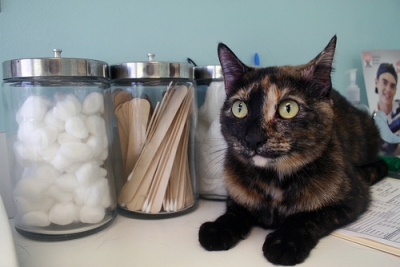Osteogenesis Imperfecta, also known as Brittle Bone Disease, is a genetic disorder in which bones and teeth are very fragile. It is caused by a mutation of one of two genes for collagen, an abundant body protein which is the major component of skin, bones, cartilage, tendons and ligaments.
Collagen is one of the main ingredients in giving bones their elasticity. Without collagen, bones become very brittle.
When there is a defect in collagen, bones fracture easily. They can break spontaneously or with slight trauma such as a little jump.
Dog breeds in which brittle bone disease is seen more often include Golden Retriever, Beagle, Poodle, Collie, Dachshund, Norwegian Elkhound and Bedlington Terrier.
Symptoms of Osteogenesis Imperfecta are joint pain, spontaneous bone and teeth fractures, hyperlaxity (greater than normal range of motion in joints). X-rays will show reduced bone density.
DNA testing is available to determine if Osteogenesis imperfecta is present and its severity. In mild cases, surgery to set broken bones has been performed.
While the condition is seen mainly in dogs, there have been cases reported in cats.
At this time there is no treatment or cure for this condition.



